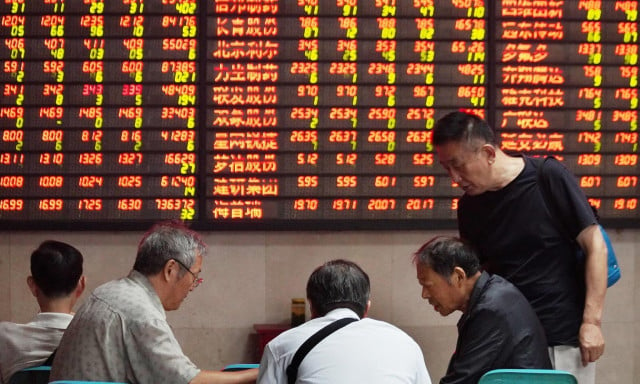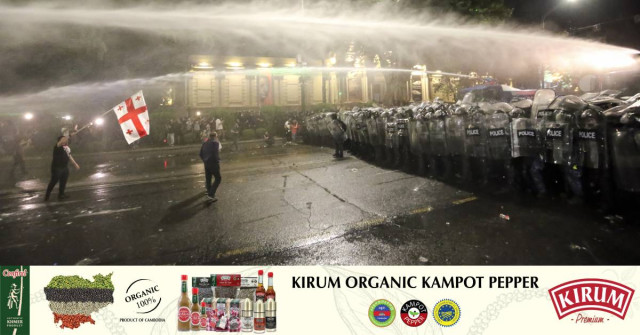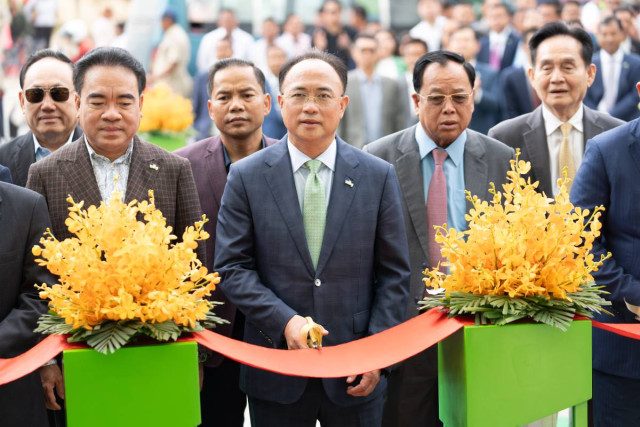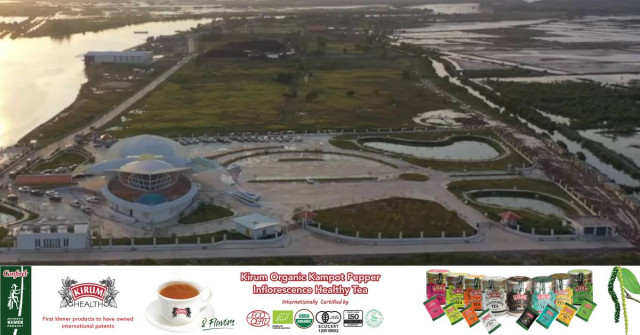The Mekong, Cambodia's Untapped Tourist Treasure
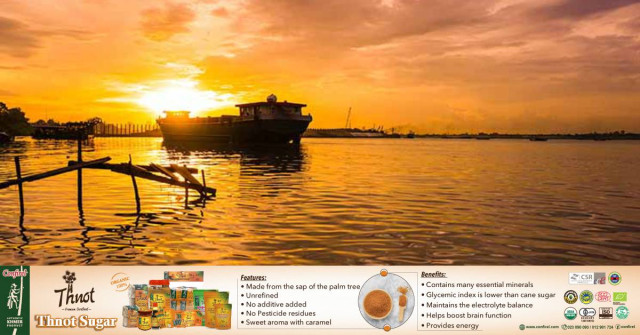
- By Lepetitjournal Cambodge
- January 10, 2024 2:10 PM
PHNOM PENH – Since 2018, leisure tourism has been on the decline in Cambodia, falling 23% between 2018 and 2019. The pandemic abruptly closed borders in 2020, but this suddenness may have obscured other deeper reasons for Cambodia's tourism decline. Alexis de Suremain, who has been working in the tourism sector since 2005, shares his thoughts on this trend.
Alexis de Suremain arrived in Cambodia in January 2002 and has been involved in the tourism industry since 2005. He has been involved in the creation of around twenty hotels, restaurants and bars throughout Cambodia.
His areas of expertise include bioclimatic architecture in tropical environments, materials recycling and solar air-conditioning. He is also active in promoting Cambodian culture through various exhibitions, from Elsewhere to The 240 gallery, via La Plantation and currently Aquation, where he welcomes new Cambodian artists and the Princess Buppha Devy dance school.
From 2018 to 2019, leisure tourism in Cambodia fell by 23%. The pandemic in 2020 accentuated this decline, but Alexis de Suremain believes there are other underlying factors.
In his view, there are several possible reasons. Some of these include:
- A deteriorating image of Cambodia in the Western press.
- The Sinicisation of Sihanoukville and the property sector in Phnom Penh.
- Over-tourism in certain temples.
- The management of opposition parties by the previous government, leading to the loss of the "Everything But Arms" treaty.
- A lack of alternatives for tourists after visiting Angkor Wat.
There are also external obstacles affecting the tourism sector, such as the growing sense of insecurity linked to inflation in Europe, geopolitical conflicts in Russia, Ukraine and Gaza, environmental awareness limiting air travel, and the near parity between the dollar and the euro, making the country less attractive to Europeans.
What's more, Cambodia is one of the few countries in the region not to offer a free tourist visa.
To revitalise tourism, Alexis de Suremain suggests renewing the offer. He takes the example of Saudi Arabia, a country that is ultra-conservative, but which offers avant-garde cultural initiatives to its international clientele. Although financial resources may differ, he insists on the need to have a will and a strategic vision before having financial resources.
On a macro level, he suggests starting with what already exists. At present, the two best-known sites in Cambodia are Angkor and the Mekong, the latter of which is sorely lacking in visitor facilities to motivate travellers to plan a trip.
The Mekong, with its connotations of romance, adventure and exoticism, fits in with the current trend towards "slow tourism". It could become a destination in its own right, comparable to a trip down the Danube, Route 66 or the GR20 trek in Corsica.
A trip down the Mekong from Luang Prabang to the 4,000 islands, via the Khone Falls to the delta, could be a destination worthy of a long-haul plane ticket. Atypical infrastructure along the river would add a new attraction to the country. Because some stretches of the river are not navigable, part of the journey could be made overland, by car, motorbike or even bicycle.
To make this idea a reality, the private sector could collectively present it to the government. The idea would be to register the Mekong as a special tourist zone, benefiting from tax and administrative facilities to attract investors.
This would follow Vietnam's model with Phu Quoc, with reduced VAT, more flexible visas and more accessible development permits.
In addition to the economic benefits, floating structures have significant ecological advantages, minimising their impact on the immediate environment. A company such as Wetlands Work! has developed a bio-treatment system for household waste water, which allows waste to be discharged without impacting on the environment.
The development of the Mekong as a tourist zone would provide employment opportunities for rural populations and enable them to climb the social ladder.
Alexis de Suremain concludes by stressing the need to renew Cambodia's tourism offering, using the Mekong as a distinctive destination capable of competing with such well-known sites as Angkor. He encourages a strategic vision and the involvement of the private sector to stimulate interest in the country and attract international travellers.






